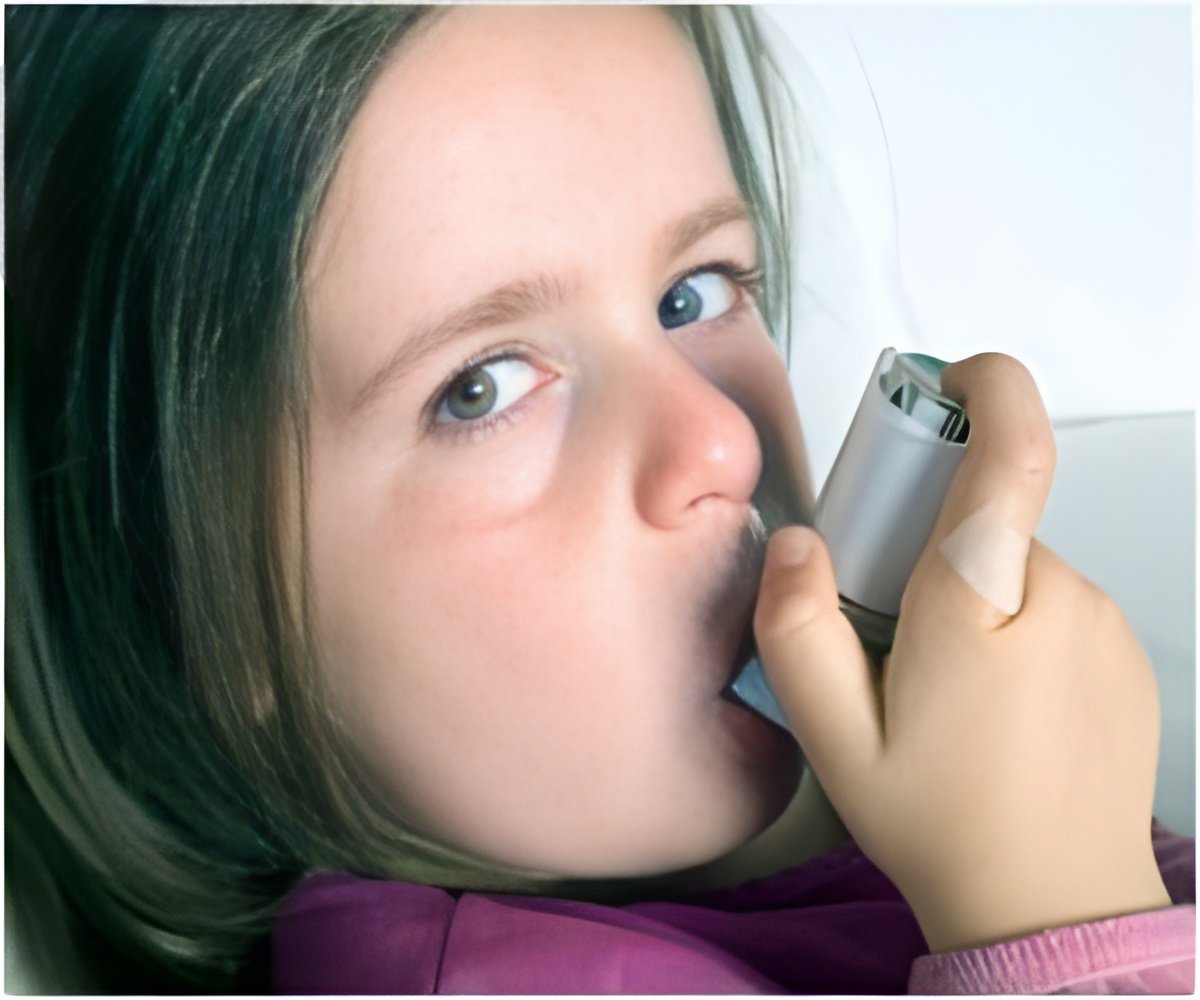The World Asthma Day's theme this year is,`You can control asthma.' Asthma is perhaps the most commonly discussed respiratory disease after the common cold.

The basic principle on how to control this chronic disease which affects almost 300 million worldwide remains the same as was prophesied by Maimonides. Asthma is perhaps the most commonly discussed respiratory disease after the common cold. The word asthma is derived from a Greek work meaning 'breathlessness or panting'' both of which accurately describe an attack of asthma.
The World Asthma Day's theme this year is,`You can control asthma.'
'The aim is to ensure that people understand the need to be on inhalers and maintenance dose of drugs,'' Dr. R.Narasimhan , chairman of the Respiratory Research Foundation of India, a non-governmental organization.
Control of asthma keeps throwing up new areas of research and at times continues to be an enigma. For instance, a new study suggests that the overuse of antibiotics in early childhood could be partly responsible for the alarming rise in asthma and allergies in recent years, a new study suggests. Another recent study suggests that Mediterranean diet, high in vegetables and fruit but low in saturated fat children brought up on vegetable-rich diet are less likely to be affected by asthma.
When a person with asthma comes into contact with something that irritates their airways (an asthma trigger), the muscles around the walls of the airways tighten so that the airways become narrower and the lining of the airways becomes inflamed and starts to swell. Sometimes sticky mucus or phlegm builds up which can further narrow the airways.
Martin Blaser of the New York University School of Medicine believe in the hygiene hypothesis which states that young children need to be exposed to lots of microbes for the healthy and normal development of their immune systems.
''Helicobacter is an ancient organism that everyone used to have in the stomach - and now it's disappearing,'' Dr. Blaser said.
''Less than 10 per cent of kids in Canada and the U.S. currently carry it ... At the same time, asthma rates have been rising.''
This suggests, he said, that exposure to microbial infections in early childhood prevents or diminishes the development of asthma and allergies.
If that is a common sense approach, equally so is the finding vegetables and fruits considerably lessen the chances of asthma attacks.
The development of inhaled corticosteroids has revolutionized asthma treatment, which has moved away from treating the symptoms to controlling the underlying inflammation of bronchial airways.
Inhalation of the asthma medicine is the most effective treatment as it delivers medicine right to the place where it is meant to work, and is also devoid of any side effects.
For people suffering from mild asthma (infrequent attacks), the use of inhalers can be need-based, while those having significant asthma (symptoms occurring every week) must be treated with anti-inflammatory medication, preferably inhaled corticosteroids and bronchodilators. Acute or severe asthma attacks may require hospitalization, administration of oxygen and intravenous medication.
But hospitalization and such other emergency situations can be prevented by the sustained use of inhaled medicines.
The quick-relief medications are taken to achieve prompt reversal of an acute asthma ''attack'' by relaxing bronchial smooth muscle.
The World Health Organization recognizes that asthma is of major public health importance. The Organization plays a role in coordinating international efforts against the disease. The aim of its strategy is to support Member States in their efforts to reduce the toll of disease, disability and premature death related to asthma.
International action is needed to:
· increase public awareness of the disease to make sure patients and health professionals recognize the disease and are aware of the severity of associated problems;
· organize and co-ordinate global epidemiological surveillance to monitor global and regional trends in asthma;
· develop and implement an optimal strategy for its management and prevention (many studies have shown that this will result in the control of asthma in most patients); and
· stimulate research into the causes of asthma to develop new control strategies and treatment techniques.
Recognizing the need to improve the management of asthma in India, some medical and non-medical professionals started the Asthma Foundation in 1998. From propagating the knowledge of asthma and encouraging newer ways of managing the disease, the Foundation is now looking at ways of fitting asthma into the spectrum of respiratory diseases and evolving simple strategies for its management at the primary-care level without much investment. The Foundation is focussing on rural areas where healthcare facilities, in general, are poorer than in the urban areas. The management methods are being tailored to the availability, accessibility and cost of infrastructure.
The Respiratory Research Foundation of India will conduct a free screening camp in Chennai the capital of the southern Indian state of Tamil Nadu on May 2, the World Asthma Day, its chairman Narasimhan said.
The Foundation will also distribute asthma cards that will entitle the card-holders to three months' free supply of steroid inhalers.
A person needing two doses spends Rs. 8 a day on inhaler drugs. They last 45 days. Though the cost appears to be high, by denying treatment, asthma could turn into chronic obstructive pulmonary disorder (COPD). Asthma is reversible, but COPD is not, he warned.
Steroids, when taken intermittently, do not act well on asthma, he noted.
The burden of asthma seems to continue to increase despite all the solutions. It affects 3.5 per cent to over 20 per cent of the population in any country. On World Asthma Day new resolutions are likely to be taken up by many countries. However if you want to fight asthma you have to fight pollution.
Source-Medindia











